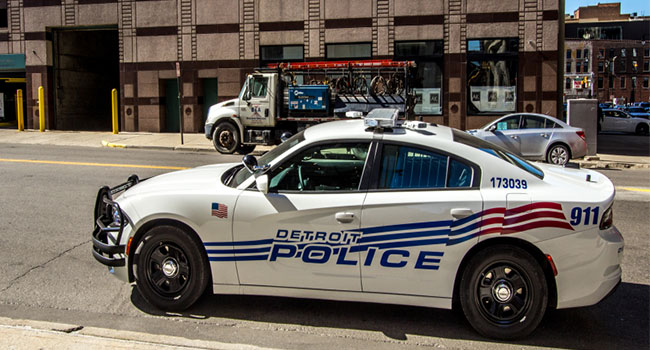
Opposition to Government Use of Facial Recognition Technology Grows in Detroit
A recent public meeting exposed tensions about how a city-wide video surveillance system is being used to identify crime suspects in Detroit.
- By Haley Samsel
- Jul 11, 2019
Project Greenlight, Detroit’s opt-in video surveillance system for businesses across the city, was launched to much fanfare in 2016. Meant to deter crime through flashing green lights marking the presence of cameras, the public-private initiative has gained support from community leaders, welcoming its 500th business earlier this year.
But the city’s decision to purchase facial recognition software for the camera system in 2017 did not receive a launch event or widespread local media coverage. Up until a few months ago, it was not common knowledge that Detroit police were using the technology and video footage to pursue people accused of crime.
The issue has gained more attention in Detroit and nationally in recent weeks, with The New York Times publishing a feature on police video surveillance and racial bias in the city. The newspaper reported that the facial recognition program matches faces against 50 million driver’s license photographs and mug shots in a statewide database.
A May report by the Georgetown Law Center on Privacy & Technology exposed the extent of the real-time facial recognition system, and the police department has since sought a vote from a local oversight board on a policy regarding the issue.
The Georgetown report, titled “America Under Watch,” criticized the city for not being fully transparent with its residents about the program, including the businessowners who signed up for Project Greenlight without knowledge that they were part of a facial recognition operation.
The project’s website also does not explicitly mention the facial recognition system or how police use potential matches to pursue suspects.
“None of the information provided to prospective partners informs them of the fact that face surveillance is part of Project Green Light, and may be used on their camera feeds,” write authors Clare Garvie and Laura Moy.
At a June police commissioners board meeting, residents spoke out against the surveillance program as well as the potential for the city to use facial recognition with a new traffic light program. The board tabled the facial recognition surveillance measure but voted to approve rules for the traffic light cameras, The Detroit Free Press reported.
One local resident, Tawana Petty, told the board that the “very technologists who created [facial recognition] said it’s harmful and biased,” referring to studies that indicate the software makes more errors when it comes to racial minorities and women.
"I have to push you all to at least understand the technology you’re implementing," Petty said, according to the Free Press. "This will be the largest experiment on black people in the United States — 700,000 black people being submitted to an experiment that has already failed all over the world."
San Francisco became the first major American city to ban police use of facial recognition in May despite police and other security officials calling it a useful crime prevention tool.
No such measure has been introduced in Detroit. But even the man tasked with overseeing surveillance technology acknowledged that the software has accuracy issues when it comes to racial minorities. James White, an assistant police chief, said he has been misidentified as other black men by Facebook’s facial recognition algorithm.
“On the question of false positives — that is absolutely factual, and it’s well-documented,” he said, according to the Times. “So that concerns me as an African-American male.”
The Detroit Police Department’s current solution is to limit the use of facial recognition to the investigation of violent crimes, and not arrest anyone solely on the basis of a match, White said.
But some privacy advocates and residents say the potential benefits — catching people who committed crimes without physical evidence — may not be worth the potential harm to innocent people who are misidentified. In their report, Garvie and Moy write that the increased presence of video cameras at schools, religious institutions and community centers under Project Greenlight may violate the privacy rights of citizens and make them less trustful of law enforcement.
“The goal of these surveillance cameras is to make Detroit’s residents feel safe going about their daily lives,” they wrote. “Adding face surveillance to these cameras risks doing the opposite.”